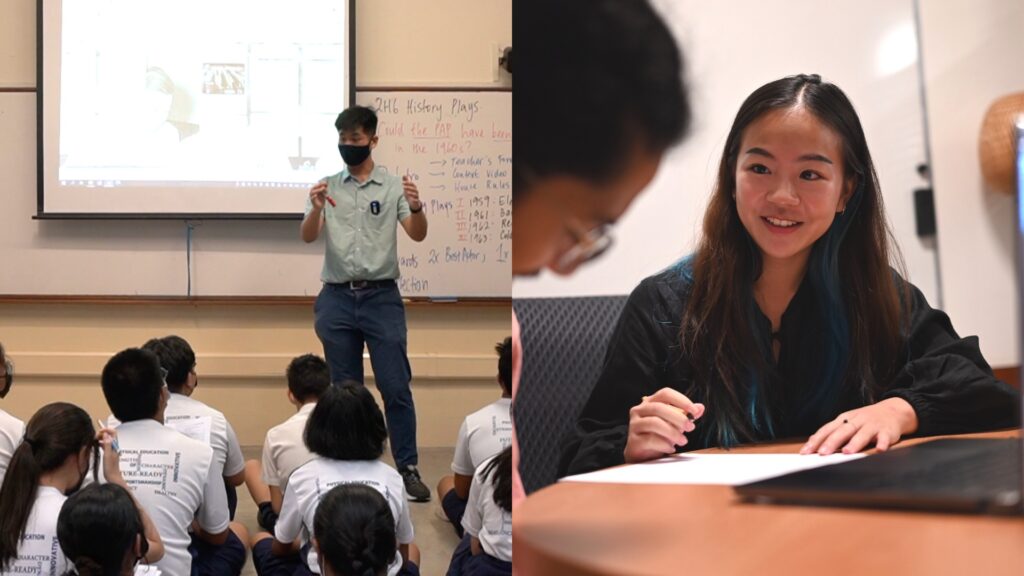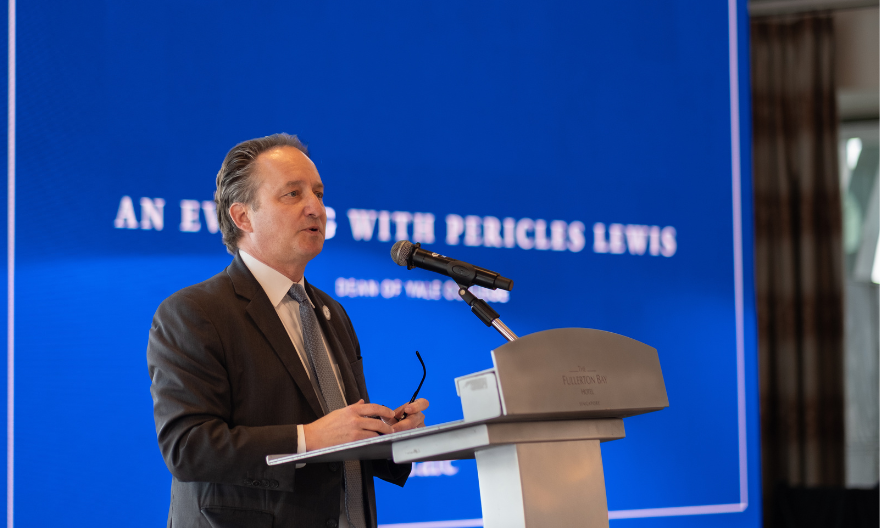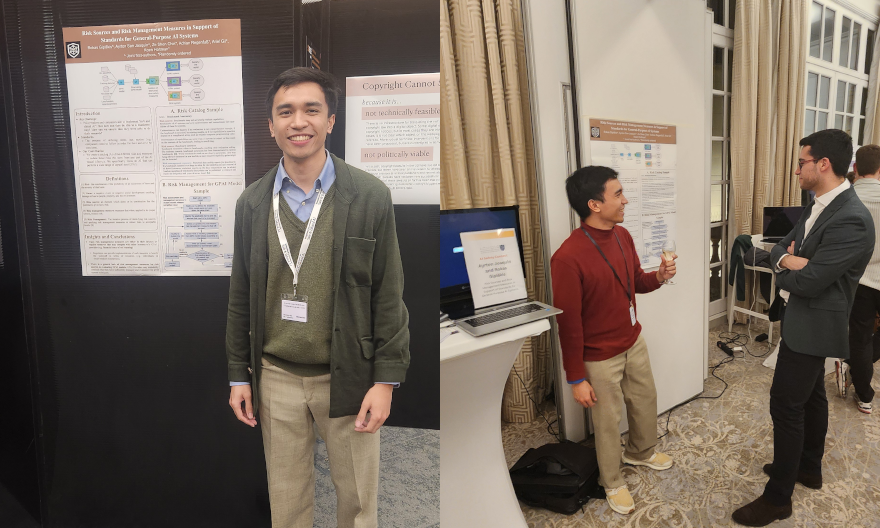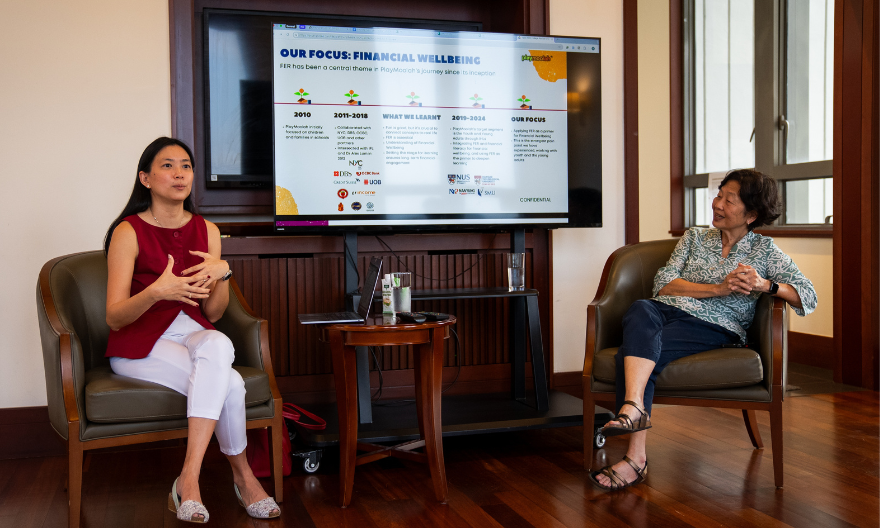From student to educator: Kingfishers and their teaching journeys
Learn how an Yale-NUS alumnus and student make a difference through teaching and tutoring

Yale-NUS College fosters a safe and nurturing learning environment which encourages active learning, adaptability and different modes of critical thought. This unique setting has inspired some to embark on teaching journeys of their own.
The Writers’ Centre on campus provides support for writers and writing through a wide variety of services and programmes. The centre engages Yale-NUS students to be peer tutors and work with fellow students to make effective writing and revision strategies in their writing.
Silvia Suseno (Class of 2024) has been a peer tutor at the Writers’ Centre for the past two years, and helps those who struggle with their essays from any discipline. She started tutoring as she had already enjoyed guiding her classmates with their writing. “What keeps me excited about tutoring is that delightful eureka moment that happens between you and a tutee when you’ve been working together to figure out the best way to convey what they want to say and the essay finally seems to click into place,” Silvia shared.
For Silvia, she sees her tutoring role as a two-way street that allows her to also learn from her tutees. She takes it as a learning opportunity to gain new knowledge when guiding her peers on essays far away from her own field – once even about language translation works in computer software! When tutoring a topic she’s done before, she gets to discover new perspectives. She credits the peer tutoring programme for nurturing healthy relationships for both tutors and tutees as it engages discussions about creating a safe space for writing.
Alumnus Seow Yongzhi (Class of 2018) embarked on a teaching career under the Ministry of Education (MOE) scholarship, and now teaches at a local school. He discovered a calling to teach after participating in the MOE internship programme, and finds the career meaningful as he sees immediate and visible payoffs by shaping the values and character of the young.
When asked if the Yale-NUS experience influenced his career, he recollected the “spirit of inquiry across disciplinary boundaries”, and now encourages his own students to ask questions that their classmates can answer to create a student-directed learning environment that is more collaborative. He also reminisced about fruitful discussions he used to have with fellow Yale-NUS peers, “Our spirited debates of yesteryear have solidified my belief that good learning is facilitated through fruitful discussions, which I nowadays consciously create space and time for in my lessons,” Yongzhi reflected.
As a teacher, Yongzhi hopes that educators will continue to be recognised and respected by society as they share a common goal in guiding young characters that must adapt to new opportunities and challenges. He also wants teachers and those aspiring to be one to continue representing the heart of an educator. “I believe that authentic lessons can only be crafted by authentic learners; that teachers must believe in our own lessons before students can learn; that the teacher’s sincere passions enliven and enrich our students’ participation,” he shared.




